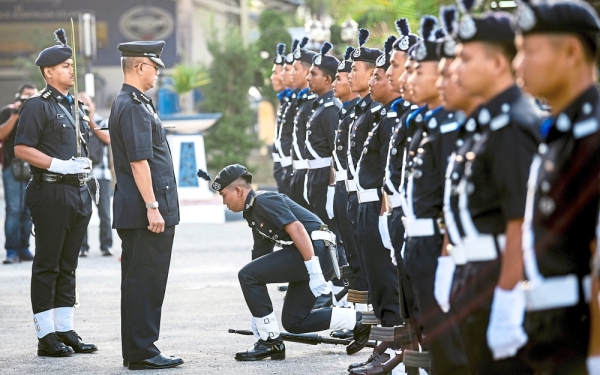
Published by The Star, image from The Star.
I understand how many police officers feel about the Independent Police Com-plaints and Misconduct Commission (IPCMC).
It has likely been presented to them as a big bogeyman put out there to target and persecute police officers.
Framing the call to have an institution tasked with independent oversight of the police as a big “us versus them” type of narrative has been as unfortunate as it is inaccurate.
Nobody wants to make life harder for good police officers. One look at their salary scales and the risks that come with the job will tell you that their lives are hard enough.
I have no doubt that many of those in civil society calling for the IPCMC have had plenty of positive interactions with the police – sometimes even when facing each other on opposite sides of a protest.
The police are given one of the most noble tasks imaginable in any given society: To protect citizens, and to maintain law and order – even at the risk of their own lives.
Nobody doubts this, and nobody should.
To say that the Royal Malaysian Police (PDRM) are completely and totally without any problems whatsoever would of course be inaccurate.
There is nothing particular or special about this. Any institution whatsoever – commercial, government, private, public, and so on – is bound to have some sort of internal problem or another.
Most people are familiar with the problems associated with bad apples within PDRM. Corruption, a relationship that is sometimes too close with criminal elements, and the ongoing problem of deaths in custody.
The last is a particularly poignant issue, as we have read of case after case of healthy young men entering police custody, only to come out in body bags.
Whatever their alleged crime, this is a perversion of the rule of law and due process. There are countless cases where body bruises provide clear evidence of detainees being beaten to death.
Families presented with a corpse are given incredulous causes of death: asthma, sudden death, and the favourite “suicide” – even as the victim’s bodies are covered in bruises obviously sustained from multiple beatings.
Many had hoped that with the change of government during GE14, we might see an end to such cases. That came nowhere near to being realised.
There are at least two reasons why these cases continue.
The first is that there has been no strict instructions from the top down to stop this shameful, brutal behaviour.
The Royal Malaysian Police has always been a tightly run institution, where obedience to superiors is practised quite rigidly. If the top brass were really serious about putting an end to beating detainees to death, their orders would be obeyed.
Secondly, there is little to no deterrent for cases of deaths in custody. Simply put, almost no policeman has ever been found guilty and punished under the law for causing the death of a detainee.
Indeed, there is an extremely low conviction rate of police officers for any crime whatsoever.
This in turn is often seen as stemming from the fact that the task of investigating the police falls to – of all people – the police themselves.
Surely the glaring problem here is staring us straight in the face.
These are after all the same people they have to literally trust with their lives, day in and day out on the streets. Expecting them to investigate one another with a view to putting their colleagues in jail is almost as cruel as it is illogical.
Ultimately, the question must be asked: Quis custodiet ipsos custodes – who watches the watchers?
The United States has the FBI and various internal affairs departments that can investigate local police, while the IPCMC is modelled after Britain’s own IPCMC.
Who can Malaysians turn to?
If the IPCMC has a bad brand name and so on, the government should feel free to call the new institution whatever they like.
At the core of what civil society very reasonably wants is a transparent institution capable of investigating the police that is not staffed by the police themselves.
This hardly seems too much to ask, and the rest of the details should be up for negotiation.
The focus should of course not only be on punitive measures. The same institution, or a parallel one, can also be tasked (and provided with sufficient political will) to genuinely improve the welfare of police officers, and push through the reforms and changes that the police want most for themselves.
Done right, an independent, transparent institution – or institutions – creates a win-win situation for absolutely everyone involved: The police will have improved welfare and an even better reputation, the few bad apples will face justice, and the government will be seen to be keeping its promises in a manner that is fair to all.
Nathaniel Tan is Director of Media & Communications at EMIR Research, an independent think-tank focused on strategic policy recommendations based upon rigorous research.

